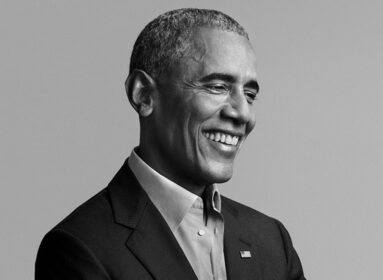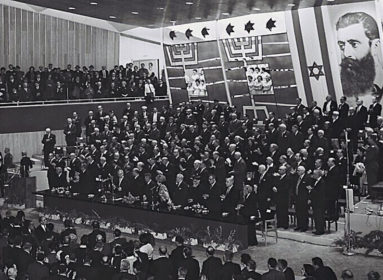By Brian Maissy
Free speech is once again under attack at the University of California, Berkeley, this time regarding Israel dialogue on campus. Or so the press would have you believe. J, the Jewish news weekly of Northern California, followed by the Forward and Haaretz, took this angle in the weeks after Berkeley’s Jewish Student Union (JSU ) voted on a membership bid by the local branch of J Street U, the university division of the self-styled “pro-Israel, pro-peace” lobby. But as a student active in the JSU and present at the meeting in question, I can attest that this representation is not accurate.
At a meeting on November 16, Berkeley’s JSU, the umbrella organization for Jewish groups on campus, deliberated on whether to grant membership to the Berkeley chapter of J Street U. Representatives of J Street U presented their organization, and more than an hour of discussion followed. Arguments for and against were given, and although the debate was heated and the atmosphere a bit tense, proceedings were civil and respectful.
The main argument for granting membership was the desire to maintain a large tent. J Street U represented a portion of Jewish student opinion at Berkeley, and these views, although controversial to some, deserved a place in the JSU. The main argument against centered around concerns that the group was not as pro-Israel as it professed to be, and was beyond the pale of inclusion in the JSU’s tent. That argument consisted of three parts.
The first concern was about problematic statements and actions by J Street, including lobbying Congress against a resolution condemning incitement in Palestinian schools, criticizing Operation Cast Lead as disproportionate, and flirting with the BDS movement for boycott, divestment and sanctions against Israel.
Disapproval was also expressed over an event by J Street U at Berkeley the year before. It featured a speaker from the Sheikh Jarrah Solidarity Movement who portrayed Israelis as violent occupiers, presented false information to students, and described Jerusalem under Israeli control as a symbol of evil. Jewish groups, we argued, should be fighting, not abetting, the movement to demonize Israel on campus.
Perhaps the most important argument was against J Street’s outlook on the relationship between American Jews and Israel vis-a-vis the American government. J Street believes in using the American government’s pressure to influence Israeli politics. The students in the JSU who were against granting membership argued that this modus operandi is quite different from that of AIPAC, which works primarily to strengthen the U.S.-Israel relationship, not influence Israeli politics from abroad.
American Jews can and should be involved in the dialogue on the future of the Jewish homeland, but that should not include soliciting Western pressure on the democratically elected Israeli government. Israelis who disagree with the government must use public activism to make their voices heard through the ballot box. American Jews should not be turning to American neo-imperialism to get Israeli politics going in the direction they want. At the JSU meeting, students maintained that although J Street claims to be pro-Israel, its approach weakens Israeli sovereignty and undermines Israeli democracy.
The debate ended. The ballots were cast and the votes counted. A two-thirds majority was required to grant membership. The result: by a vote of 9 for, 10 against and 2 abstentions, J Street U was not admitted to the JSU.
The JSU is a home for all Jewish students, and of course members of J Street U are still welcome at all JSU events and remain valued members of the Jewish community. But J Street U, as a group, was deemed beyond what the JSU considers legitimate Israel engagement and not meriting JSU endorsement and funding. J Street U did not have its free speech taken away, but the JSU chose not to endorse that speech.
I and the nine other Jewish student leaders who voted no did not do so out of bigotry or closed-mindedness. We did so out of a conviction that the JSU should remain strongly pro-Israel, and a belief that J Street U has not demonstrated worthiness of inclusion in that tent. We respectfully considered the positions of both sides and voted according to our values and conclusions.
A large minority disagreed, but the issue was decided by civil discourse and a fair vote. Nobody was silenced, contrary to the image presented by the press. J Street U had its chance to be heard, and it was. Now is the turn for the majority of Jewish students at UC Berkeley to be heard. And they’ve said no to J Street U.
Brian Maissy is a fourth-year undergraduate student at the University of California, Berkeley, and a member of the JSU and Tikvah: Students for Israel.








 Southern New England Jewish Ledger
Southern New England Jewish Ledger









